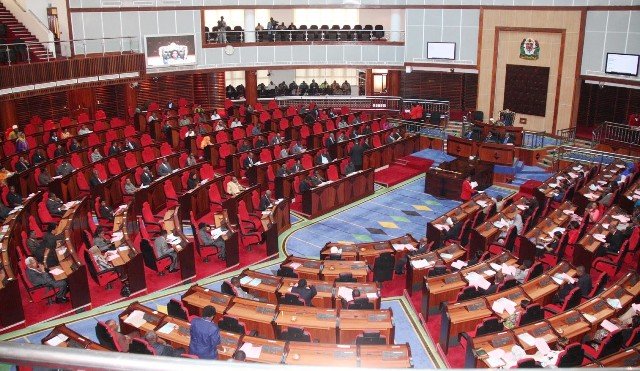House resumes today kitted for fiery debate

AFTER a three-day recess, Parliament today starts debating the 31.7tril/- budget with heated discussion anticipated to feature on, among others, the ban on direct export of minerals, abolition of annual motor vehicle road licence fees and scrapping of VAT on ancillary transport services to goods in transit.
The Minister for Finance and Planning, Dr Philip Mpango, on Thursday tabled the country’s 2017/2018 budget, which basically remains people-centred and a real game-changer, according to a cross-section of MPs and public commentary.
Predictably, the country is set to witness yet another frenzied discussion as President John Magufuli is this morning also receiving a report from the second probe team on mineral concentrates.
So this report could be seen to exclusively impact that debate, in the sense that the mining industry is one of the areas in which lawmakers have persistently pushed for immediate measures to make it significantly contribute to the national economy.
This second report comes a few weeks after the president received the first one, which unearthed massive thievery in the mining sector, and is billed to also divide the House based on political affiliations.
Evidently, this comes from the past ‘bad experience’ when the debating chamber was sharply divided when the state moved to impose an indefinite ban on mineral sand exports.
While debating budget estimates for the Ministry of Energy and Minerals two weeks ago, opposition legislators locked horns with their colleagues from the ruling CCM, sending the House into an historic record that the country’s ‘resource defenders’ had become the virtual ‘devil’s advocates.’
Today’s reports, coming when the dust is yet to settle on the previous, will osten sibly fuel another punch-up. What is likely to be more in common between the report and the budget estimates is the ban on direct minerals exports, which is a deliberate move by the state to ensure the resource significantly contributes to the country’s economy.
Minister Mpango said the government will almost certainly refuse moves aimed at allowing direct exportation of the minerals from the mines to overseas buyers.
Instead, the minister said the state would establish clearing houses at international airports, mining sites and other appropriate areas where the minerals would be verified and issued with export permits.
Under this new arrangement, according Dr Mpango, the government would impose a clearing fee pegged at one per cent of the value of the minerals.
Scrapping of the motor vehicle annual road licence fee which goes with a hike on petroleum products by 40/- to compensate for the loss, is also set to attract fiery debate from a number of MPs, and critics are hinting that even non-motorists, who would effectively be forced to pay for the fee, may join the fray.
While motorists celebrate the abolition of the annual fee, which many regarded as a nuisance – including people who do not own cars – drivers will still have to dig deeper into their pockets to pay for that piece of paper called ‘road’ licence’ – and that’s the point likely to trigger the debate.
Dar es Salaam port which recently witnessed cargo dryup is also set to assume ‘centre-stage’ in debate even as the government has sought to resolve it by eliminating VAT on goods in transit.
The legislators, transporters and other stakeholders have since raised concerns over the VAT imposed in 2016/2017, citing it as the reason behind importers’ decision to prefer other seaports in neighbouring states, bringing down cargo volumes at the country’s major sea-gateway.
The FY 2017/2018 budget standing at 31.7tril/- has been increased by 2.2tril/- from this year’s 29.5tril/-.







No comments